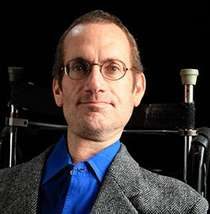If you’re reading this, chances are you’re interested in disabilities (or people who have them). The good news is, you’re not alone.
In fact, I’ve been noticing a growing trend over the past few years. Disabled people have become a hot commodity. If you don’t believe me, consider a few examples:Mainstream publishers have recently published books such as Alice Wong’s Disability Visibility, a collection of progressive essays by a diversity of disabled folks, and Emily Ladau’s Demystifying Disability, a young-adult guide to disability alleyship.
In movies, the documentary Crip Camp—about a generation of disability rights activists who all attended the same summer accessible camp—was nominated for an Oscar last year, and this year CODA, a story about a hearing woman from a Deaf family, is up for Best Picture.
In fashion, Aaron Rose Philip, a wheelchair-using model for luxury brands such as Moschino, has appeared in the glossy pages of beauty magazines worldwide. Meanwhile, Jillian Mercado, another disabled model, landed a role in Showtime’s The L Word: Generation Q, and disabled YouTubers Shane Burcaw and Zach Anner are also doing TV work.
The examples go on and on. Which is why I wanted to write a book about this phenomenon. Representation matters. I know there still aren’t enough good, honest portrayals of disability, but to me at least, the progress seems huge.
The question I wanted to explore was, How did we get here?
How Did We Get Here
I’m old enough to remember when the Americans with Disabilities Act of 1990 was signed into law. It was a dream come true—the culmination of an idea that activists before me had fought for against seemingly impossible odds. I got involved at the tail end of that effort, writing letters to Congress and giving testimony. But I never really thought it would work.
Since we got our civil rights, a generation of disabled people has grown up with an expectation of legally protected fairness. There are still too many barriers, of course, too much injustice. But the younger generation has moved the disability cause in a whole new direction. A lot of directions, actually, all at once.
Autistic people began self-advocating. Disabled people of color refused to be ignored any longer. Disabled members of the LGBTQIA community asserted themselves, too. People started talking about intersectionality, the idea that many folks are members of multiple minorities and therefore face multiple types of discrimination.
In short, disabled folks of all types came out of the shadows. They asserted themselves in ways that went beyond civil rights law. They insisted that they be seen and heard.
On college campuses, disability studies courses began springing up. As the field developed, scholars began to identify a new disability narrative, a history of oppression and survival that went back centuries, not mere decades. The panoply of disability icons grew beyond the usual suspects, such as Helen Keller and FDR. Myriad disabled heroes who had been largely erased from the narrative came to center stage. Among them: Marsha P. Johnson, the Black trans woman who was instrumental in the Stonewall uprising that galvanized the gay rights movement, lived most of her life with psychiatric and physical disabilities. Jazzie Collins, an African American trans woman activist and community organizer who was HIV-positive, became an ardent disability-rights and social-justice advocate.
Encouraged by these and many other examples, young disabled people refused to accept the status quo. Some took to social media, posting selfies in all kinds of exotic locations while engaged in all kinds of exotic activities, to demonstrate the sex appeal disabled people possess. Others went to open mic nights, singing and doing standup comedy. Disabled writers (like yours truly) pitched books and articles to publishers.
Making Progress
In time, a new generation of editors and casting directors and media gatekeepers began to take notice. They realized that a quiet revolution was taking place. Disabled people were everywhere, a bankable commodity, a hot market.
But as with passage of the A.D.A., even this progress does not mean the problems are solved. There are still too few disabled people behind the camera, so to speak, or otherwise in charge. Some might say we’ve barely moved beyond a kind of tokenism.
Still, the needle has moved. The door is open a crack. Let’s keep pushing. Let’s leverage this moment, these opportunities, to take the idea of disability integration and inclusion further. Trends come and go, but this one, I think, may have staying power. It comes from a long lineage of disabled people who insisted on participating in society, even if only in marginal ways. Who knows where that might lead from here.
You can read more about my exploration of what the disability community has been up to in the three decades since the A.D.A. passed when my new book, DISABILITY PRIDE (available for pre-order now), comes out in November.

Ben Mattlin
Ben Mattlin is a Los Angeles-based freelance writer, author and frequent blogger for FacingDisability.com. He was born with spinal muscular atrophy, a congenital muscle weakness that causes paralysis and related health issues.
Ben is the author of MIRACLE BOY GROWS UP: How the Disability Rights Revolution Saved My Sanity, and IN SICKNESS AND IN HEALTH: Love, Disability, and a Quest to Understand the Perils and Pleasures of Interabled Romance . He is a frequent contributor to the Washington Post, New York Times and Financial Advisor magazine. His work has also appeared in the Los Angeles Times, Chicago Tribune, and USA Today, and has been broadcast on NPR’s Morning Edition.
Bravo, Benjamin! Wonderful piece. I have to order and read your current book and look forward to your November release.
I am finally passing through some (non-Covid) health issues and have started writing my musical biography with The Cripples, Spare Parts and Sweat Equity, i.e. The Rock Years!
Wish me good luck and lots of discipline, old friend.
Shawn